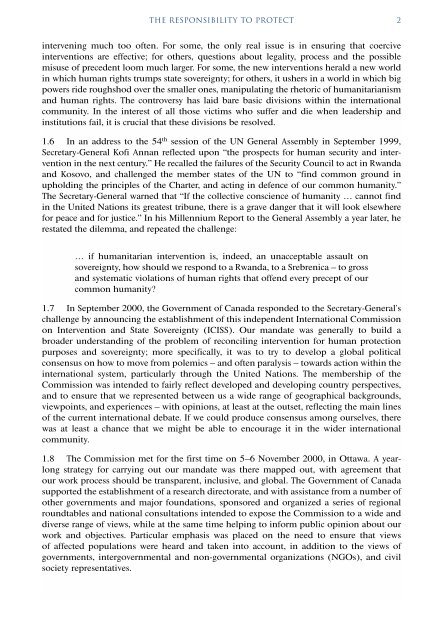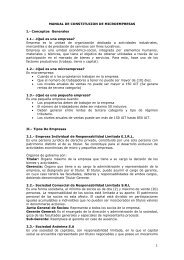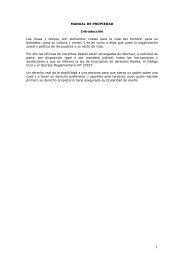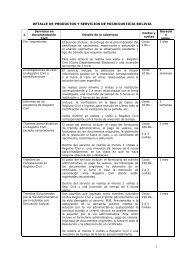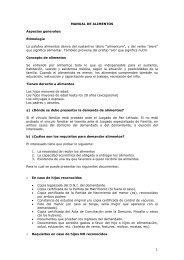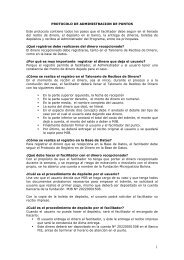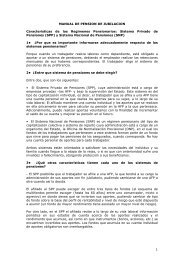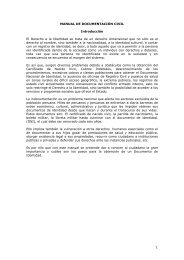ICISS report - International Coalition for the Responsibility to Protect
ICISS report - International Coalition for the Responsibility to Protect
ICISS report - International Coalition for the Responsibility to Protect
Create successful ePaper yourself
Turn your PDF publications into a flip-book with our unique Google optimized e-Paper software.
The <strong>Responsibility</strong> <strong>to</strong> <strong>Protect</strong> 2<br />
intervening much <strong>to</strong>o often. For some, <strong>the</strong> only real issue is in ensuring that coercive<br />
interventions are effective; <strong>for</strong> o<strong>the</strong>rs, questions about legality, process and <strong>the</strong> possible<br />
misuse of precedent loom much larger. For some, <strong>the</strong> new interventions herald a new world<br />
in which human rights trumps state sovereignty; <strong>for</strong> o<strong>the</strong>rs, it ushers in a world in which big<br />
powers ride roughshod over <strong>the</strong> smaller ones, manipulating <strong>the</strong> rhe<strong>to</strong>ric of humanitarianism<br />
and human rights. The controversy has laid bare basic divisions within <strong>the</strong> international<br />
community. In <strong>the</strong> interest of all those victims who suffer and die when leadership and<br />
institutions fail, it is crucial that <strong>the</strong>se divisions be resolved.<br />
1.6 In an address <strong>to</strong> <strong>the</strong> 54 th session of <strong>the</strong> UN General Assembly in September 1999,<br />
Secretary-General Kofi Annan reflected upon “<strong>the</strong> prospects <strong>for</strong> human security and intervention<br />
in <strong>the</strong> next century.” He recalled <strong>the</strong> failures of <strong>the</strong> Security Council <strong>to</strong> act in Rwanda<br />
and Kosovo, and challenged <strong>the</strong> member states of <strong>the</strong> UN <strong>to</strong> “find common ground in<br />
upholding <strong>the</strong> principles of <strong>the</strong> Charter, and acting in defence of our common humanity.”<br />
The Secretary-General warned that “If <strong>the</strong> collective conscience of humanity … cannot find<br />
in <strong>the</strong> United Nations its greatest tribune, <strong>the</strong>re is a grave danger that it will look elsewhere<br />
<strong>for</strong> peace and <strong>for</strong> justice.” In his Millennium Report <strong>to</strong> <strong>the</strong> General Assembly a year later, he<br />
restated <strong>the</strong> dilemma, and repeated <strong>the</strong> challenge:<br />
… if humanitarian intervention is, indeed, an unacceptable assault on<br />
sovereignty, how should we respond <strong>to</strong> a Rwanda, <strong>to</strong> a Srebrenica – <strong>to</strong> gross<br />
and systematic violations of human rights that offend every precept of our<br />
common humanity?<br />
1.7 In September 2000, <strong>the</strong> Government of Canada responded <strong>to</strong> <strong>the</strong> Secretary-General’s<br />
challenge by announcing <strong>the</strong> establishment of this independent <strong>International</strong> Commission<br />
on Intervention and State Sovereignty (<strong>ICISS</strong>). Our mandate was generally <strong>to</strong> build a<br />
broader understanding of <strong>the</strong> problem of reconciling intervention <strong>for</strong> human protection<br />
purposes and sovereignty; more specifically, it was <strong>to</strong> try <strong>to</strong> develop a global political<br />
consensus on how <strong>to</strong> move from polemics – and often paralysis – <strong>to</strong>wards action within <strong>the</strong><br />
international system, particularly through <strong>the</strong> United Nations. The membership of <strong>the</strong><br />
Commission was intended <strong>to</strong> fairly reflect developed and developing country perspectives,<br />
and <strong>to</strong> ensure that we represented between us a wide range of geographical backgrounds,<br />
viewpoints, and experiences – with opinions, at least at <strong>the</strong> outset, reflecting <strong>the</strong> main lines<br />
of <strong>the</strong> current international debate. If we could produce consensus among ourselves, <strong>the</strong>re<br />
was at least a chance that we might be able <strong>to</strong> encourage it in <strong>the</strong> wider international<br />
community.<br />
1.8 The Commission met <strong>for</strong> <strong>the</strong> first time on 5–6 November 2000, in Ottawa. A yearlong<br />
strategy <strong>for</strong> carrying out our mandate was <strong>the</strong>re mapped out, with agreement that<br />
our work process should be transparent, inclusive, and global. The Government of Canada<br />
supported <strong>the</strong> establishment of a research direc<strong>to</strong>rate, and with assistance from a number of<br />
o<strong>the</strong>r governments and major foundations, sponsored and organized a series of regional<br />
roundtables and national consultations intended <strong>to</strong> expose <strong>the</strong> Commission <strong>to</strong> a wide and<br />
diverse range of views, while at <strong>the</strong> same time helping <strong>to</strong> in<strong>for</strong>m public opinion about our<br />
work and objectives. Particular emphasis was placed on <strong>the</strong> need <strong>to</strong> ensure that views<br />
of affected populations were heard and taken in<strong>to</strong> account, in addition <strong>to</strong> <strong>the</strong> views of<br />
governments, intergovernmental and non-governmental organizations (NGOs), and civil<br />
society representatives.


